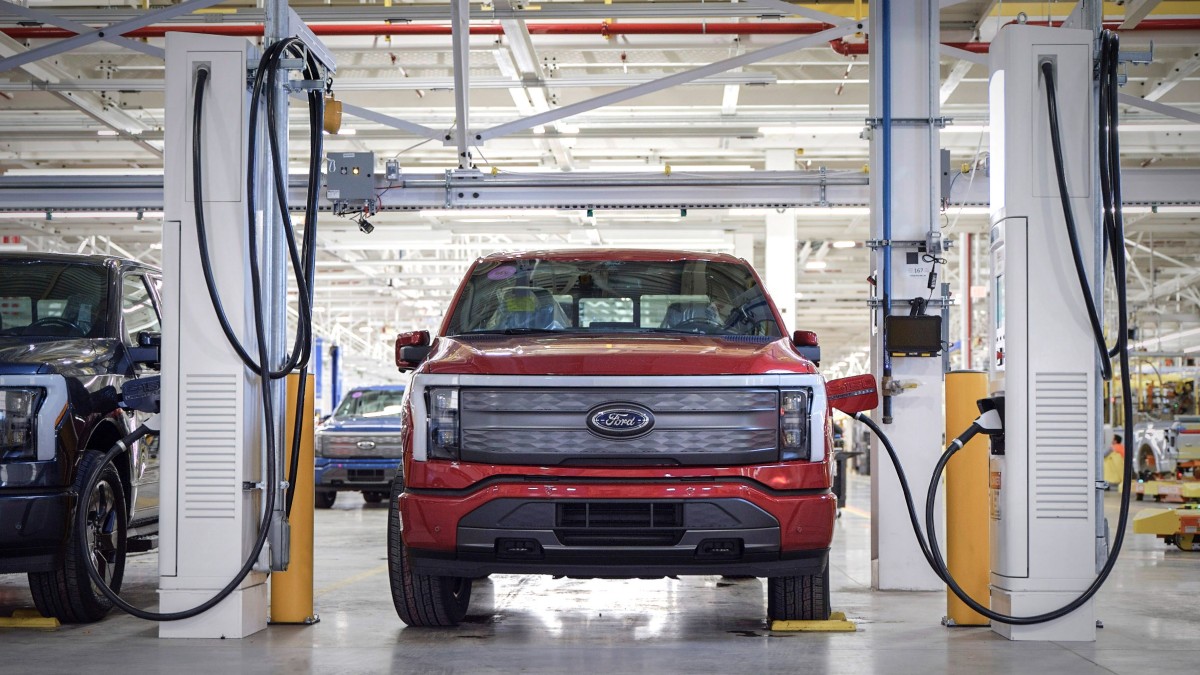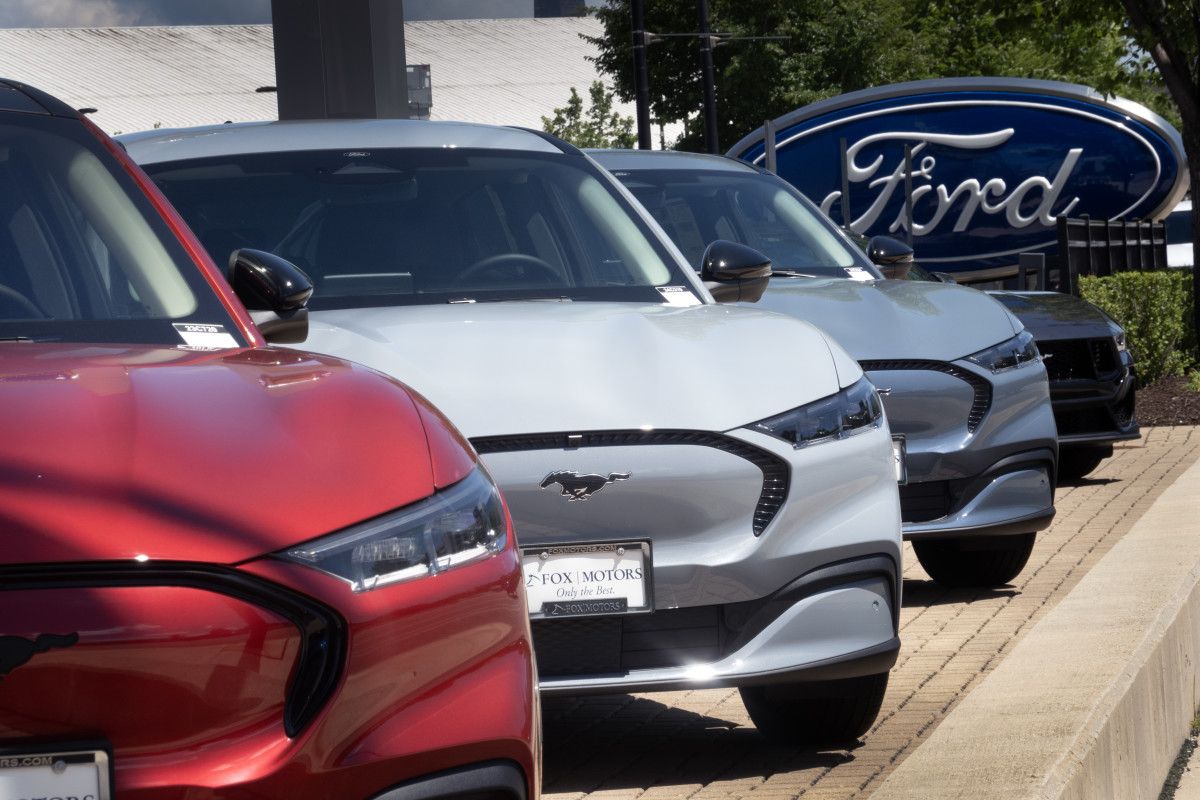
For every EV skeptic, there is an EV fanatic, and in the greater automotive industry, no automakers can fill these two roles like Toyota (TM) and Ford (F) , respectively.
Despite leading the way with innovative hybrid-electric vehicles like the Prius, Japanese automaker Toyota's approach to electric vehicles and electrification has reflected the thoughts of a skeptic.
Notoriously, Toyota Chairman Akio Toyoda told a crowd in Tokyo earlier this year that no matter "how much progress" manufacturers achieve with EV technology, EVs will ultimately only capture a 30 % market share, with the rest being a share of hybrids, fuel cell, hydrogen, and 'regular' gas-powered internal combustion engines.
"I think this is something that customers and the market will decide, not regulatory values or political power," Toyoda said.
Related: Toyota is betting the house on cars people really want to buy
Conversely, the CEO of Dearborn, Michigan-based Ford, Jim Farley, has embraced EVs, creating a small lineup of electric vehicles, including the Ford F-150 Lightning pickup truck, the Mustang Mach-E crossover, and the E-Transit commercial van. According to Ford, these products helped elevate the brand to the number 2 EV brand in the U.S., right behind Tesla.
However, a commitment to EVs does not come without sacrifice. Unfortunately, that sacrifice was their bottom line.
In Q2 2024, Ford's EV division, known internally as Model-e, reported an EBIT loss of $1.1 billion. The quarter before that, it reported an EBIT loss of $1.3 billion, or $130,000 on every EV it sold that quarter.
Despite not being fully invested in EVs, Toyota's skepticism helped lead them to a record net profit of $30.3 billion for the fiscal year ending in March 2024, a figure credited to sales of hybrids in key markets.
Hybrids have done so well for Toyota that it plans to stuff hybrid engines in nearly all its North American offerings.
This head start in hybrids has Ford playing catch-up, but Ford execs recently laid out a game plan to get ahead.

Decisions, Decisions
Ford is shifting gears in its strategy regarding electrification, prioritizing products that can make the automaker money in due time.
The full scope of the operation will cost the automaker up to $1.9 billion. Still, Ford argues that money spent will help them make more vehicles that American consumers will gravitate towards.
The highlight of the shift regards Ford's three-row electric crossovers, which were slated to be built in a factory now designated for Super Duty pickup trucks. Plans for those "big EVs" have been axed, and in their place, Ford plans to make three-row hybrid SUVs, a bread-and-butter segment driven by the Blue Oval's Explorer and Expedition models.
“This is really about us being nimble and listening to responses from our customers,” Lawler told Automotive News.
“We looked where the segment was evolving, the amount of competition, the customer needs, and then, the size of the battery that needs to go in a pure EV, the cost structure, the pricing, we could not put together a vehicle that met our requirements to be profitable in the first 12 months of launch.”
According to Ford CFO John Lawler, axing the electric three-row SUVs will cost the company a $400 million non-cash charge, resulting in additional expenses and expenditures of up to $1.5 billion.
However, he argues that the move is made to reflect changing customer demands and maximize the use of the Advanced Manufacturing Tax Credit for its U.S. battery production.
Ford plans to reduce its capital expenditures on pure EVs from 40% to 30% annually as part of its shift towards hybrids.
More Business of EVs:
- Waymo finds new way to bring chaos to quiet city streets
- Gavin Newsom's 'EV mandate' is under U.S. Supreme Court threat
- BMW's clever, new EV app is a privacy nightmare
Additionally, the Ford CEO reiterated an earlier comment about the Ford Super Duty, noting that the next iteration of the heavy-duty work truck can be optioned with engines that do not entirely rely on a gas—or diesel-burning internal combustion engine (ICE).
In its statement, Ford said, "The next-generation F-Series Super Duty pickup will have a range of propulsion options, building on Ford’s hybrid truck sales leadership with the F-150 and Maverick."
Given that the Super Duty truck secures the Blue Oval an estimated $20,000 in profit on every unit, Ford CEO Jim Farley noted the importance of giving customers freedom of choice.
"As the global leader in pickup trucks, we are future-proofing this valuable franchise across all sizes with hybrid, electric, and other electrified propulsion options, giving individual customers and businesses choice based on how they use their trucks," Farley said.
Betting on the next-generation
Ford is still committed to fully electric vehicles despite the pivot towards hybrids.
The Ford CEO has been touting the abilities of his California-based "skunkworks" team. This team operates independently from the Blue Oval and is tasked with taking "a systems-integration approach across design, engineering, supply chain, and manufacturing" for its next-generation electric vehicles.
"We recruited the most technically skilled and creative professionals from inside and outside Ford to drive a radical change in how we develop an electric vehicle," Farley said. "The work of this highly talented team has evolved into a critical enabler of our electric vehicle strategy. These electric vehicles will have lower costs and will not be compromised in any way."
Related: Ford stock drops as CEO pushes forward with small EV campaign
In past statements, Farley noted that Americans will have to get used to smaller cars, noting, "It’s super important for our society and for EV adoption." He further clarified that bigger cars require bigger batteries, which results in "more pressure on margins because customers will not pay a premium for those larger batteries.”
Ironically, the first vehicle on the new, smaller "skunkworks"-developed platform will be a midsize pickup coming in 2027 for "customers who want more for their money – more range, more utility, more useability."
Though more vehicles are coming, Ford says its battery plants, including its Blue Oval City complex in Tennessee, are on track to produce cells in 2025.
“An affordable electric vehicle starts with an affordable battery,” Farley said. “If you are not competitive on battery cost, you are not competitive.”
Ford is expected to hold an event in the first half of 2025 to share updated details of its electrification and technology plans.
The Ford Motor Company, which trades on the New York Stock Exchange under the symbol F, is up 1.12% from the opening bell, trading at $10.80 at the time of writing.
Related: Veteran fund manager picks favorite stocks for 2024







